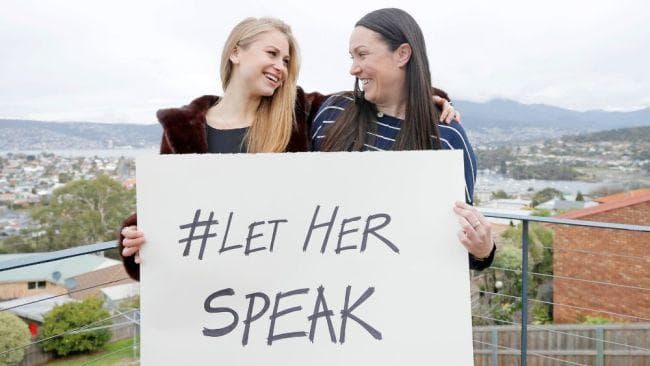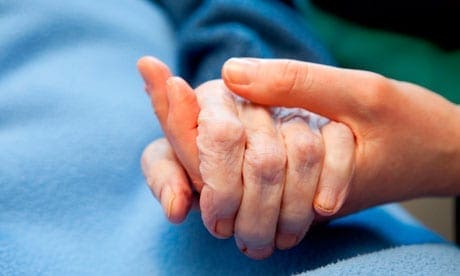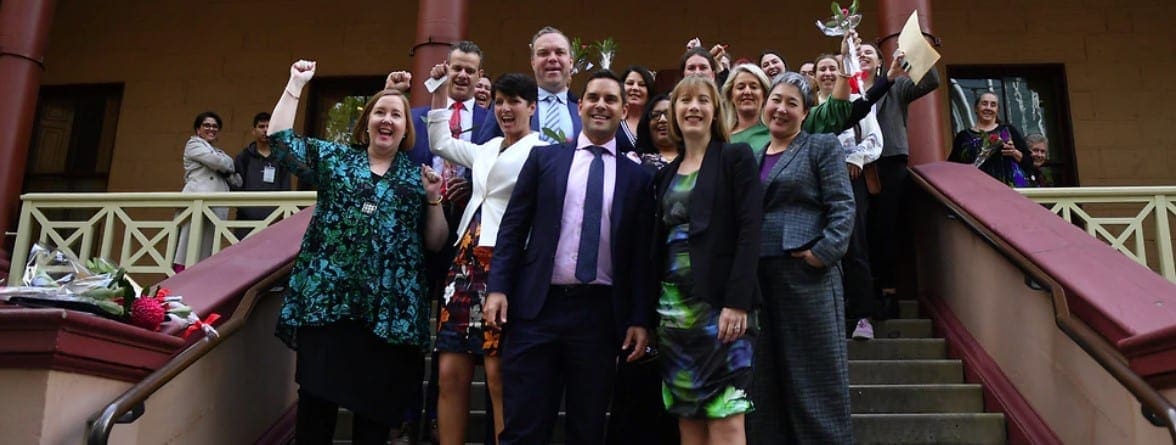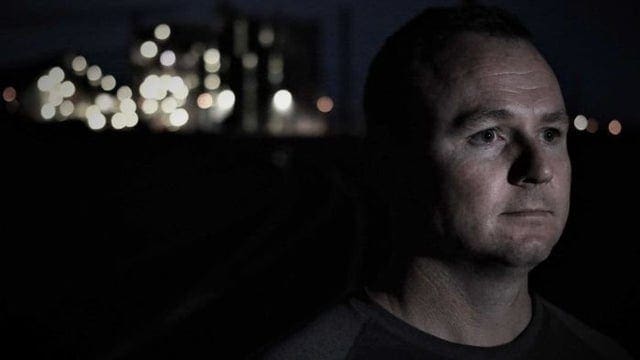The ‘traditional’ or ‘nuclear’ family unit, comprising of mother, father and biological children, is no longer the only way we think and define families.
Rather, the concept of family has developed to take on various forms. Single parents, de-facto couples, same-sex relationships, blended families and adoptive families are among a few of the many familial structures present in our society today.
With an acceptance of a more dynamic family unit, the law has been forced to adapt and respond to accommodate for these changes.
In July of 2019, the High Court of Australia was forced to deal with the question, can a sperm donor be considered as a legal parent of a child?
This question was presented to the High Court after sperm donor, Robert Masson, applied to the Family Court in an attempt to prevent his friend, and the mother of the child, Susan Parson, from relocating to New Zealand with her female partner. A move that would have effectively separated him from his biological daughter.
Mr Masson, who was listed as the father on the girl’s birth certificate, told the court that he agreed to donate his sperm to his friend, on the agreement that the would be involved in the child’s life.
The child was conceived in 2006 and in the intervening years, the child refers to Mr Masson as “daddy”. Since her birth twelve years ago, Mr Masson has also maintained a close relationship with her, introducing her to his extended family, holidaying with her and volunteering at her school canteen.
Upon application to the Family Court, Justice Margaret Cleary wrote that the law recognised parents in different ways. In recognising Mr Masson as a legal parent, Her Honour prohibited Susan and her partner from relocating to New Zealand, ordering that the child is to spend regular time with Robert.
The girl's mother and her wife appealed the decision and won, arguing that Mr Masson was not the legal father, citing NSW Statute in evidence of their proposition. Under NSW state law, a sperm donor is presumed not to be the father of any child conceived using his sperm unless he is the husband or de facto partner of the mother. As a consequence, Mr Masson was presumed not to be the legal parent.
Mr Masson then filed an appeal to the High Court, relying on Commonwealth laws to support his claim of legal parentage. In ruling that Mr Masson was, in fact, a parent of the child, the High Court considered the clash between State and Federal laws. The majority held that Masson had clearly demonstrated, in addition to being a sperm donor, that he had an ongoing involvement and relationship with the child, meeting the definition of “parent” under federal laws. This decision reaffirmed the earlier ruling that the mother and her wife remain in Australia and are to consult Mr Masson on major parenting decisions.
In making this ruling, the High Court has expanded the definition of a “legal parent” to include a sperm donor. However, whilst the effects of this expansion may appear to be far reaching, the implications of this decision is limited.
Only where a sperm donor can demonstrate that they meet the definition of a parent under the federal act, and where the biological mother did not have a spouse at the time of conception, will the Court agree that the donor is a legal parent. Anonymous sperm donors who have not seen or had a relationship with their biological child will not be considered a legal parent in the eyes of the law.
Nonetheless, the complexity of this case highlights several practical issues for both prospective mothers and sperm donors.
Where a sperm donor does not wish to have any parental responsibility over a child, they may now find themselves exposed to the full gamut of responsibility, including child support and inheritance. Likewise, single mothers who do not wish to share parental responsibility with a sperm donor may be faced with parentage orders.
It is therefore in the best interests of all parties involved that a Sperm Donor Agreement be drafted and executed prior to entering into any donor-acceptance arrangements. Although it may not be legally binding, by clearly setting out their intentions in the agreement, both parties will be protected.
If you wish to discuss your options, please do not hesitate in contacting Freedman and Gopalan Solicitors.
Under the current Tasmanian law, laws prohibit survivors from being named in the media, regardless of whether they give their consent. In 2012, a Tasmanian newspaper breached this law and received a $20,000 fine, even though the assault survivor had given full consent to the publication. These ‘sexual abuse gag laws’ take away the agency of survivors and their ability to heal in their chosen way and have led to the powerful movement in Tasmania known as #LetHerSpeak launched in November 2018.
#LetHerSpeak campaigners argue that survivors have the right to identify themselves in the media and to share their own story, especially given the perpetrators frequently share their stories and names. In August 2019, Grace Tame won a court order exempting her from the gag laws and allowing her to speak out using her real identity. However, this court application was lengthy and cost approximately $10,000 in legal fees.
As a result of the campaign, Tasmanian Attorney-General Elisa Archer has revealed plans to amend the law, specifically the Evidence Act 2001 (Tas), to enable publication of the survivor’s name if the following conditions are met:
- The victim has authorised the publication of their name in writing,
- They are over 18 years old at the time of publication,
- They have the capacity to consent, and,
- They were not coerced into consent.
The law would continue to have safeguards and protections for the survivors who do not wish to be identified, and it would still be a serious offence to breach these laws. The changes will be released for consultation before the end of 2019, so they can be introduced to Parliament in 2020.
The proposed changes would bring Tasmania into line with other states in Australia. In NSW, sexual assault survivors may be named in the media if journalists have the consent of the victim, and the victim is over 14 years old. The story is similar in Queensland, South Australia and Western Australia, where the victim must be 18 years old, and in the ACT and Victoria where there is no age requirement to consent to publication. If Tasmania goes ahead with the changes, the Northern Territory will be the only jurisdiction to retain these archaic gag laws.
If you or anyone you know is affected by sexual assault, please call 1800 RESPECT (1800 737 732) or contact Lifeline on 11 13 14. If you would like to discuss your legal options, contact our offices on 8917 8700 or via the enquiry form on this website.
Pets are an integral part of a family, and increasingly have become a major issue subsequent to a family separation. Not only can a family separation cause emotional stress for either partner, it also affects your children along with the wellbeing of your pet.
Whilst there is no current legislation in Australia that explicitly refers to the living arrangements of pets following a separation, they are, however, considered as part of the general personal property pool and in the same manner as furniture, clothing and other assets.
If you have issues with the custody of your pet like in the scenario where your ex-partner has taken sole custody of your pet without notifying you, you will need to make an application to the court in order to recover your pet.
There are also other things you need to consider: -
- The best thing to do in the first instance is to sit down and attempt to negotiate the living arrangements of the family pets together. Consider who the pet has predominantly bonded with and its relationship to each party.
- We understand that a family pet also comes with many financial responsibilities, including vet bills, grooming expenses and day to day feeding expenses. For this reason, we would highly recommend for Consent Orders or a Binding Financial Agreement to be entered into between the parties to ensure you would have a legally enforceable agreement to rely upon should any issues in the future arise. This would include considerations in relation to: -
- Who the pet would reside with on a day to day basis;
- With whom the pet shall be registered; and
- Who would be responsible for each financial expense.
If you have exhausted all your efforts with your ex-partner and would like to seek further information or assistance in relation to the custody of your pet, please do not hesitate to contact our helpful team at Freedman & Gopalan Solicitors, and we will be happy to assist you in any manner!
“We need leaders not in love with money but in love with justice. Not in love with publicity but in love with humanity”.
These are the powerful words of protesters in downtown Beiruit, Lebanon.
Over the course of a week, tens of thousands of people have flooded the streets of Lebanon in protest against political corruption and economic woes.
These protests have grown steadily across the country, with tensions reaching an ultimate high on Thursday.
In an attempt to prevent the economic collapse of Lebanon, the government proposed to enforce a $6 per month tax levy on the messaging application, WhatsApp. As this is the main method of communication for the majority of Lebanese people, the imposition of a tax is understandably unwelcome.
Following the announcement of new tax increases, protesters marched in Beirut, Tripoli and other major cities, waving the national flag and demanding for “the fall of the regime”. They have blocked main roads and threatened to topple the country’s fragile coalition government.
Despite the governments swift abandonment of the tax on communication methods, and the resignation of the coalition party, the demonstrations have quickly grown into the largest the country has seen in 14 years. The sheer size and duration of these protests is demonstrative of a country uniting as one in the pursuit of a revolution.
The main reason for public outrage stems from a continued rate of poverty across the country. With more than a quarter of the Lebanese population living below the poverty line, rampant corruption has widened the gap between the privileged elite and the rest of the country. In her dissent against Lebanese officials, Protestor, Hanan Takkouche, stated that they are, ‘preventing badly needed reforms so that they can line the pockets of the ruling class’. In the heartbreaking words of another protestor, Mr Hussein el Hek states, “I can’t afford my daily life, I can’t afford to be in love, or marry and it is because the politicians are stealing shamelessly from their people”.
One look at the economic state of Lebanon and it is clear that the people are right to question their government’s ability to shore up the government’s finances. Lebanon’s economy has neared a precipice with a national debt of 150% of GDP and rising, whilst their central bank reserves have plunged 30% in the past year and the local currency continues to slip against the dollar. When interviewed by the Guardian, an unidentified woman, revealed that she cannot afford to send her son to school, that she does not have electricity or insurance and that the garbage remains on her street all because, “our politicians have no mercy, they steal our salaries and livelihood”.
A nationwide general strike has been called for Monday to demand an overhaul of the government despite the resignation of government ministers on Sunday. This means that banks, shops and schools will all be closed, while travel may be restricted as the main streets are already blocked.
Our hearts are with the people of Lebanon and their families all over the world during this difficult time.
Unfair dismissal is when an employee is dismissed from their job by their employer in one of the following ways;
- Harsh – dismissing the employee was too severe a consequence for what they did;
- Unjust – the dismissal was based on act which is not factually correct; or
- Unreasonable manner – An average/ reasonable person would consider the dismissal as making no sense.
If the employee worked for a small business, then the employee may consider an employee has been unfairly dismissed if the dismissal was not in accordance with the Small Business Fair Dismissal Code.
An employee in NSW must make an application with the Fair-Trade Work Commission for Unfair dismissal within twenty-one days of the dismissal of the employee. The employee could also along with the application enclose letters and emails supporting his application.
Pursuant to an application being lodged, it will be forwarded on to the employer. The employer within seven days of receipt of the application must respond by filing their comments in response.
Within few weeks of the response being filed, a Conciliation Conference by telephone will be held by the Fair Work Commission to assist the parties to negotiate a settlement. The majority of Unfair Dismissal claims settle at a Conciliation Conference.
If a case does not settle through a Conciliation Conference, then a hearing date will be listed and both parties will have to serve documentation/ statements supporting their contention.
At the hearing, the respective legal representatives for the employer and employee present their arguments and supporting evidence to the Commissioner.
The employers when they receive a claim, should firstly consider whether any of the threshold criteria for an Unfair Dismissal claim have been breached. The list is not comprehensive, and we highly suggest that you seek legal advice prior to responding to an Unfair Dismissal claim as there may be legal contentions that are not obvious on initial assessment of the Application.
If you are interested in reading more about Unfair Dismissal laws, click here to read more.
If you would like to enquire about any of the issues raised above, please do not hesitate to contact Freedman and Gopalan by calling 8917 8700 or by filling out the enquiry box.
Violetta Hanson, a service carer in Western Sydney, has been arrested this week for stealing almost $40,000 worth of cash and jewellery from her patients.
In an attempt to offload the stolen jewellery for cash, police arrested Ms Hanson at a pawn shop in Western Sydney.
Ms Hanson is accused of fleecing approximately $40,000 in jewellery and cash from terminally ill and disabled people in her care across Wiley Park, Bexley, Drummoyne and Doonside area, over the course of ten months.
In expressing his outrage, NSW Police Superintendent Paul Devaney commented, ‘Ms Hanson’s actions are a significant betrayal of trust by a person employed to care for the most vulnerable members of our community’.
Ms Hanson has since pleaded guilty to six counts of stealing property in a house and four counts of making false statements and will be sentenced next month.
Unfortunately, Ms Hanson is not the first woman to exploit the vulnerabilities of her patients. In July 2019, Siham Carollisen was charged with stealing $140,000 from her sick mother, who was living with Alzheimers.
Although rare, instances such as these stand to evidence that those elderly and sick members of society are extremely vulnerable to exploitation.
In order to prevent the victimisation of those vulnerable in our society, there are many things we can all do:
- Become aware. By informing yourself on this topic and actively raising awareness for this issue, this will help curb the neglect or abuse occurring to those members of our society. If you have a loved one in a care facility, such as a nursing home, this will also force the staff and management to become more accountable for the conditions and caretakers they provide.
- Stay in touch and involved. Family members can help care for the elderly or sick person and be on the lookout for carers actions that may suggest instances of abuse. It is important not to isolate those elderly or sick members of our community, as this isolation increases their chances of abuse.
- Encourage the victim to speak out against the abuse. Often vulnerable persons may feel worried that reporting instances of abuse will mean that they will lose the care and support that they need. By assuring those persons that there are alternate avenues available to them, this will encourage them to speak out against the abuse occurring.
If you, or someone you love is, or has been a victim of abuse, it is important to obtain legal advice to understand your rights and entitlements. If you wish to arrange an appointment, contact our team on 02 8999 9837.
If both parties have reached an agreement in relation to parenting and/or property, Consent Orders can be entered into.
Benefits of formalising an agreement by way of Consent Orders are: -
- Consent Orders is a legally enforceable agreement that is approved by a Court. It also has the same legal effect if an Order was made by a judicial offer after a Court hearing/ trial. Serious consequences can arise should the Orders not be complied with and are breached.
- Once Orders have been made, they are final. It is difficult to vary an Order once it has been made.
- In respect of property matters, you may also be exempt from payment of stamp duty if the transfer of property (e.g. your matrimonial home) is transferred to a party or child of the relationship.
Time Limitations
Whilst there are no time limits when applying for an Application for Consent Orders in relation to Parenting Orders, there are time limits when applying for an Application seeking Property Orders.
- If your Divorce has been granted, an Application for Consent Orders must be filed within 12 months of that date.
- If you and your partner were in a de-facto relationship, then you will have 2 years to file an Application for Consent Orders.
If you are looking to finalise your family law dispute by way of Consent Orders, it is important to obtain independent legal advice to understand your rights and entitlements. If you wish to arrange an appointment, contact our team on 02 8917 8700.
After 119 years, abortion has now been removed from the NSW Crimes Act. Supporters of the bill have described this is being a massive step forward for women in the state, with NSW being the last state in Australia to decriminalise abortion. After the making of this historic decision, there is the question, what does this change mean for women seeking an abortion and for doctors who perform the abortions?
Before the reform
Since 1900, abortion has been outlawed by the NSW Crimes Act. Under the Act, anyone who “unlawfully uses an instrument or other means” with the intention to force a miscarriage, could face 10 years in prison.
Despite this, lawful abortions were still regularly performed in NSW. During this time, an abortion was considered ‘lawful’ when a medical practitioner held an honest belief that the abortion was necessary to preserve the women involved from serious danger to their life, physical or mental health. However, women could not seek to terminate a pregnancy after 20 weeks.
The reform
Under the Abortion Law Reform Act 2019, which was passed by the NSW lower house last week, it is no longer a criminal offence for a woman to have an abortion. Crucially, this means that women will no longer be criminalised for choosing to have an abortion. Likewise, qualified medical practitioners who perform an abortion no longer have to fear any punishment under the new Act.
The new Act broadly divides a lawful abortion in two categories:
- termination of pregnancy on a person who is no more than 22 weeks pregnant and,
- termination of pregnancy on a person who is more than 22 weeks pregnant.
Under both circumstances, the Act requires the free and informed consent of the woman seeking an abortion. Such a consent should be obtained without any coercion, intimidation or undue influence.
Women
The new legislation has made it easier for a woman seeking an abortion under 22 weeks. This is a historic decision as women now have the freedom to facilitate the process of obtaining an abortion, either through medication or through surgical procedures.
Women can also seek to terminate their pregnancy after 22 weeks, although, a medical practitioner must be satisfied that there are sufficient grounds for such an abortion.
With the decriminalisation of abortion, it is expected that there will be an increase in the availability of services for women across the state. This is an important statement as it acknowledges the right of a woman to make a decision, prohibiting the state from criminalising a woman’s choice.
Under the Act, a woman is explicitly barred from seeking an abortion based on the sex of the child.
Doctors
The Act imposes an obligation on a medical practitioner, who is conscientious objector, to remove himself from the process at the first instance. If an attempt to an abortion leads to a live birth, the medical practitioner has a duty of care to that child as in any other live birth.
Where a woman is seeking an abortion after 22 weeks, the medical practitioner is required to obtain the assent of another specialist practitioner, before undertaking the procedure. The other practitioner should also be satisfied if there are sufficient grounds for an abortion. Therefore, in such cases, the performance of the abortion is contingent on the discretion of the specialist medical practitioner.
If you would like to inquire into any of the issues raised in the above article, contact Freedman & Gopalan Solicitors on 02 8999 9837 or by the enquiry box on our website.
The Australian Defence Force’s internal legal system is being challenged by a veteran and lawyer, Mick Bainbridge.
Legal bills for ADF members opposing military charges in Court Martial and Defence Force Magistrate Proceedings are at the ADF’s expense only if they use Defence legal officers. While ADF members can choose to obtain external representation, this must be done at their own expense. Bainbridge argues that there is an inherent bias, since Defence legal officers generally identify with being an officer of the Defence Force first and only after, as a legal officer.
Greg Barns, the National Criminal Justice Spokesperson for the Australian Lawyers Alliance also supports this notion that funding for those who choose independent, civilian representation should not be declined due to the conflict of interest present in the situation where the accused is provided with a lawyer and the organisation prosecuting the accused is also paying the lawyer. This proposed system of funding legal fees for members even when they choose civilian lawyers for representation purposes, is currently adopted by the UK and there has been pressure for the ADF to move in a similar direction.
Nevertheless, the chances for reform in this area looks uncertain as the ADF has insisted that the efficiency of the current internal legal system is dependent on lawyers who have knowledge of the nature of military life and its laws, making them more reasonable. They further refute claims against this system by insisting that an ADF member still holds their Legal Professional Privilege and that this is recognised by the ADF.
However, it does bring to question the quality of representation the members have access to financially, should their lawyers have split loyalties and conflicts of interest as they are employed by the organisation they are representing against. Furthermore, the current system also denies the members the ability to have access to legal representation they trust should they prefer civilian representation through financial discrimination.
Ultimately, Defence remains a unique area with its complex laws, but this should not deny members of the ADF representation of their choice through restricting their funding. However, with more veterans speaking up, there may be reform in the future.
If you would like to enquire about any of the issues raised above, please do not hesitate to contact Freedman and Gopalan by calling 8917 8700 or by filling out the enquiry box.









